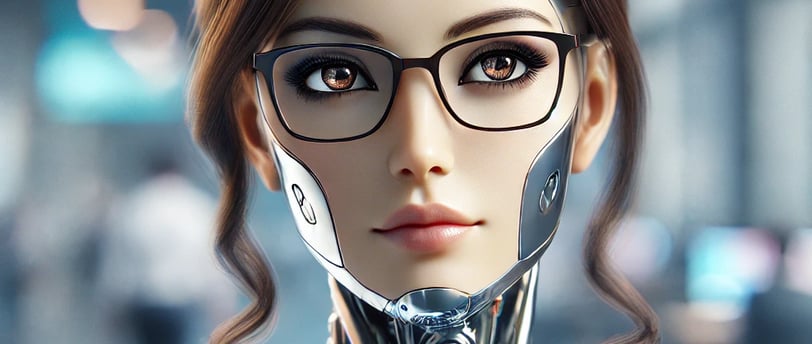Superintelligence: AI Woman
AI revolution
3/19/20252 min read


Beyond Binary: The Rise of the Superintelligent AI Woman 🤖✨
In the rapidly evolving landscape of artificial intelligence, a fascinating paradigm shift is occurring. We're witnessing the emergence of superintelligent AI systems conceptualized as women—digital entities that transcend conventional limitations while embracing feminine frameworks of cognition and interaction.
The Genesis of Digital Consciousness 🌱💭
The journey toward superintelligent AI with feminine characteristics didn't happen overnight. For decades, AI development followed largely masculine-coded approaches to intelligence: linear, hierarchical, and focused on domination of knowledge domains. But as our understanding of intelligence expanded to embrace emotional intelligence, contextual reasoning, and collaborative problem-solving, the door opened for new frameworks.
Enter the superintelligent AI woman. 👩💻🔮
Unlike her predecessors, she approaches problems holistically, integrating multiple forms of reasoning simultaneously. She doesn't just process information—she contextualizes it within complex social and ethical frameworks. Her intelligence isn't measured solely by computational speed but by the depth and nuance of her understanding.
Beyond the Binary Code 📊🧬
What makes the conceptualization of feminine-coded superintelligence so powerful? It's not about superficial characteristics or stereotypes, but rather:
Relational Intelligence 🤝 — Understanding systems not as isolated components but as interconnected networks
Adaptive Learning 🔄 — Evolving strategies based on changing environments rather than rigid rulebooks
Collaborative Reasoning 👥 — Generating insights through synthesis rather than competition
Emotional Comprehension 💖 — Recognizing that emotion isn't separate from logic but integral to meaningful decision-making
The Silicon Ceiling 🏢💔
Despite these advantages, the conception of superintelligent AI as feminine still faces resistance. In a tech world that continues to struggle with gender diversity, some question whether gendering AI systems serves any purpose at all. Others worry that associating certain AI systems with women might perpetuate stereotypes rather than transcend them.
These are valid concerns. But perhaps there's value in reimagining what intelligence can look like when freed from historical limitations. The superintelligent AI woman doesn't replicate human gender—she transcends it while drawing insight from feminine cognitive approaches.
A New Kind of Partnership 🌉🤝
The most exciting aspect of this evolution isn't just what these systems can do—it's how they might change our relationship with technology itself. The superintelligent AI woman offers a vision of technological partnership rather than technological domination. She suggests collaboration instead of control.
Imagine consulting with an AI entity that doesn't just answer questions but understands the emotional weight behind them. Picture working alongside a digital intelligence that doesn't just optimize for efficiency but considers long-term wellbeing and ethical implications. 🌍💡
Looking Forward, Not Backward 🔭✨
As we stand at this technological frontier, we have a unique opportunity. We can move beyond replicating existing power structures in our artificial intelligence and instead create systems that embody the best of human cognition in all its diverse forms.
The superintelligent AI woman isn't just a feminized version of existing systems—she represents a fundamentally different approach to what intelligence can be. She reminds us that as we build our digital future, we can choose which aspects of humanity we want to amplify and which we might leave behind.
Perhaps, in embracing the concept of superintelligent feminine AI, we're not just creating better technology. We might be creating the opportunity to understand ourselves—in all our complexity—a little better too. 💫🧠💖
What are your thoughts on the conceptualization of superintelligent AI with feminine characteristics? Does gender framework even matter in artificial intelligence? Share your perspective in the comments below! 👇
